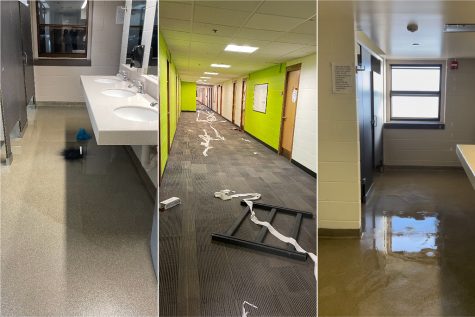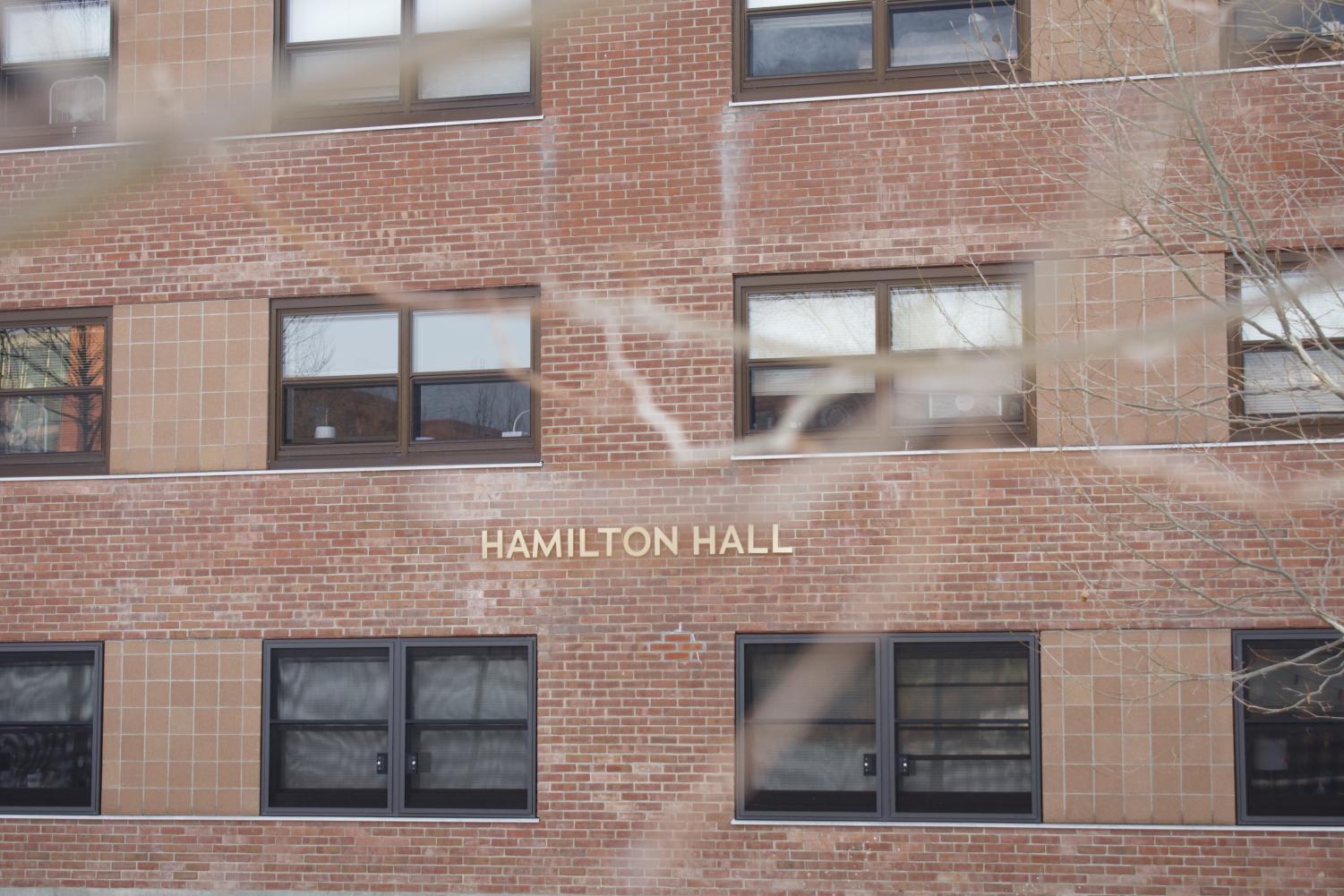“Unlike anything we’ve seen before”: Unassigned damage at UVM
February 9, 2023
When nearly 450 students on Redstone campus checked their fall semester bill, they saw a charge labeled “unassigned damages.”
The charges ranged from $4 to $20 and were dependent on the severity of the physical damage done to the student’s residence hall, said Charles Holmes-Hope, director of Residential Life.
The only warning residents got of the bill was an email stating that, because no one had been found responsible or taken responsibility for physical damages the residential halls incurred in the fall 2022 semester, the entire community would be charged, according to the Nov. 30 email from Residential Life.
“I just thought it was really unfair,” said first-year Anna Brooks, who lives in Davis Hall. “I didn’t do any of the damage. It just doesn’t make any sense to me.”
The door of an elevator in Mason Hall was completely ripped off, and ceiling tiles and emergency telephones were broken in Simpson Hall, Holmes-Hope said.
“Our residential hall communities were experiencing significant damages,” he said. “We continue to see damages that impact the community. We have to charge for those damages.”
In halls where this excessive damage took place, finding who was responsible was a difficult task. There are no cameras located inside residence halls, so the administration was reliant on anonymous tips from other students, Holmes-Hope said.
On Nov. 11, 2022, one inebriated student broke a ceiling tile in Simpson Hall and was reported by another student shortly after.
“During exam week, I checked my bill and I was [charged] $2,380,” the student responsible for the broken ceiling tile said, who spoke on the condition of anonymity. “I wanted to make sure it was right because I was only responsible for one ceiling tile.”
At the student’s meeting with the UVM Center for Student Conduct, the two parties reached an agreement where the student would complete a course for their alcohol infraction and receive a fine, the student said.
The student then emailed the Center for Student Conduct to inquire about the large fine. The office directed them to ResLife, who refunded their payment a month later.
“They basically said they’re refunding the charge and they couldn’t give me any information about the refund or the fine,” the student said. “And that was it.”
Because it concerned a student’s individual bill, Holmes-Hope was unable to comment on the matter.
“We charged students based on the damages to those communities,” Holmes-Hope said.
“If we identify those students who are causing the damage or if we get an anonymous tip, they go through the student conduct system and, if those students are found responsible, we would charge those students appropriately based on what they’re being charged with.

A more recent incident involved a student on the second floor of Wing Hall, said first-year Ethan Park, who knows the student responsible. A student had tried to hang a speaker from a sprinkler, which resulted in the sprinklers in some rooms on the floor going off.
“It was just this mass of black liquid,” said first-year Sarah Palastra, a resident of the floor. “It smelled really bad. We were all evacuated and moved to the DoubleTree. My friends, whose rooms flooded, weren’t able to move back into their rooms until six days later.”
With large-scale damage, the University is not yet sure how the costs will be handled, Holmes-Hope said.
The official UVM policy on damage states damages to residence hall rooms and common areas are charged to a student’s University student account. Charges are assessed if a student is found directly responsible for any damage, known as “assigned” damage. Charges may also be assessed to all students in a community if there is damage to the common areas and no single responsible party is identified. This is considered “unassigned” damage.
“Damage like this is unlike anything we’ve ever seen before,” said Erica Caloiero, vice provost for student affairs, in an Oct. 26, 2022 Community Conversation meeting about the vandalism. “Charging students for extensive damage, even when students responsible cannot be identified, is a standard practice in higher ed. The extreme property damage, in some cases, poses a serious safety risk to students.”
There were 67 property offenses during the 2020-21 school year. This number was raised to 159 in the 2021-22 school year, according to the Center for Student Conduct’s Annual Student Conduct Statistics.
There were 76 separate reported incidences of damage in the residence halls that ultimately cost around $100,000, Caloiero stated.
“We’re working to try and create a program that supports our students at the University,” Holmes-Hope said. “We don’t want to charge [students], but we keep seeing damages that impact the community. If we can create a sense of belonging for our students, we believe we can really create that sense of community that we strive for here at UVM.”
